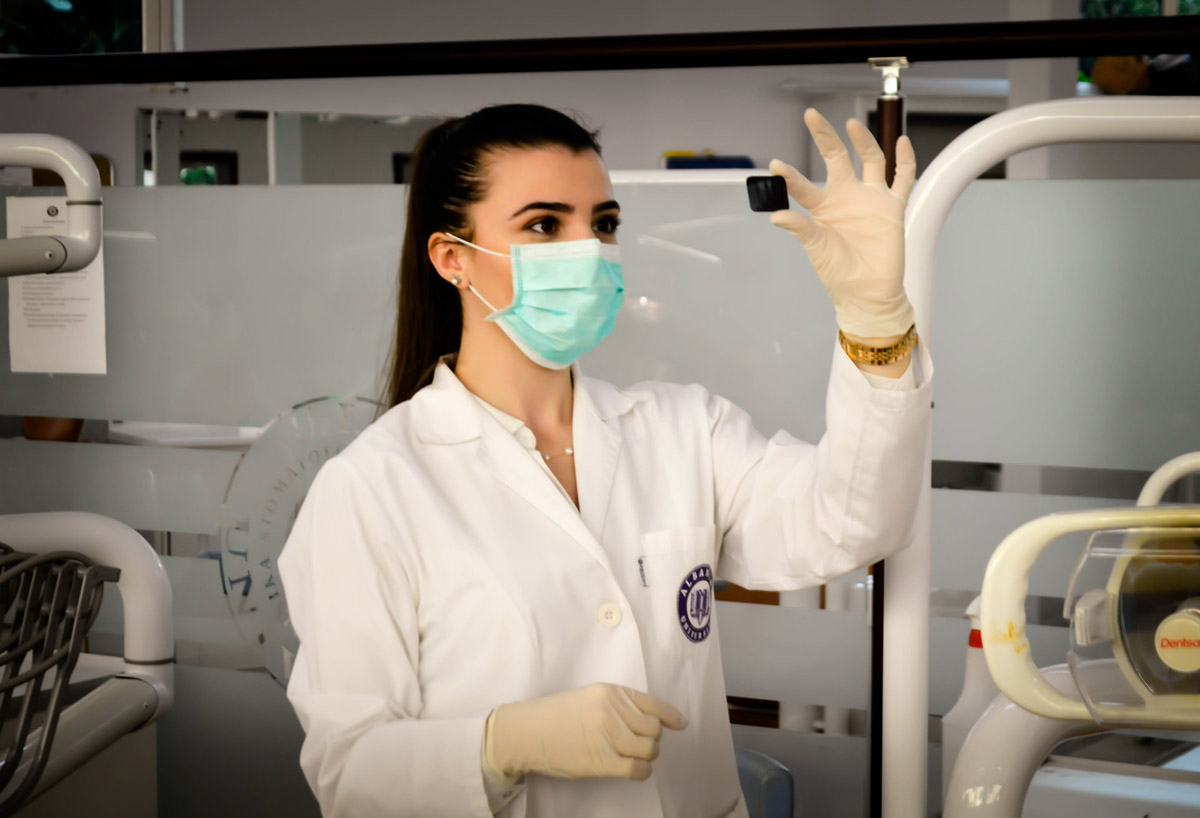For many young students, exams are the most dreaded time of the year. The late-night cramming sessions, the tears, the anger, the frustration; it’s a story that far too many parents are familiar with. And, as a parent, it is all too easy to feel like you are helpless or not qualified to assist with schoolwork, especially for parents of high school students. After all, when was the last time you integrated a function in real life? Or analysed the themes present in Macbeth? High school was a long time ago and everything is different now.
But never fear! There are several very real and useful things you can do to assist your child with their progress and preparation for exam season. After all, it’s just preparing for a T.E.S.T!
How to Prepare for Exams
T – Talk to Your Child
Communication between parents and their children, especially teenage children can be difficult. However, finding the avenues to engage with them about their schoolwork is more important at this stage of their learning journey than ever before. Under the new ATAR model, results from Units 3 and 4 of content – typically covered in Year 12 – are used to work out your child’s ATAR which determines what university courses they will have access to. In practical terms, that means that results as early as February and March of their Year 12 can determine their final graduating results. Having a correct timetable will help make sure that clear goals are being set and achieved, which is the first and most important step to success!
Your child themselves is not the only person who is involved in their learning. Reaching out to their teachers can also give you a great deal of information about their schedule and timeline. Almost all high schools operate on an exam block system. At the end of each term or semester, a couple of weeks will be set aside specifically for exams. Even if you don’t know on exactly what day your child’s exams will be taking place on, at least knowing when the exam block is scheduled will give you a great idea of when your child should begin preparing for their exams.
As well, you are not alone! If you are struggling with helping your child prepare for their exams, then chances are that other parents at your school are struggling as well. Speaking to what are in effect your ‘colleagues’ in the job of being a parent can be surprisingly helpful. Maybe another parent does have some experience with high-level Maths and can give you some advice on what your child is struggling with. Or maybe they have found a great resource on Biology or Chemistry that your family would love to have access to.
At the end of the day, open communication is only going to help your child prepare for their exams and give you as many tools in your arsenal to assist them. The fridge calendar is an under-rated piece of technology!

E – Educate Your Child AND Yourself
A great deal of the content that is covered at high school – especially Years 10, 11 and 12 – is theoretical. The actual content knowledge doesn’t matter as much as the thought processes and critical thinking skills that are being developed by your child. Robert Marzano’s Taxonomy of Educational Objectives Model – the underpinning theory behind the ATAR Curriculum – also assesses the student’s ability to analyse, comprehend and use the knowledge they have, not just parroting it back. In your everyday life, when was the last time you were asked to use a unit circle? Or find the dominant and recessive trait with a punnet square? While the specific content knowledge in high school subjects does certainly matter, the underpinning skills and learning capabilities matter just as much. And that is something you can help your child with.
Managing a timetable and working towards deadlines is a key part of just about every possible profession under the sun. Operating under stress, knowing where to look when you have questions and being accountable and honest with yourself are all part of your average day-to-day, and skills that your child can really benefit from in preparing for their exams.
To think about it another way, for the past 7 to 12 years of their life, school has been your child’s full-time ‘job’, which is a long time to spend in one place. But they have also been dealing with all the other trials of growing up and becoming a teenager and eventually an adult. Developing these general capabilities takes time and guidance, which you can provide at least one of.
Finally, when it does come to specific content, there are a large number of free online resources that you can take advantage of to help out your child. Khan Academy is the gold standard for free online learning. With global resources for parents and students alike, Khan is a great place to fill in gaps in an emergency and deepen your own understanding of a topic. As well, Wolfram Alpha can solve problems ranging from primary maths all the way up to senior algebra and trigonometry, for free!
Using online resources like these do require you to understand what you are looking for. Anyone knows how to get better at running – you run more. The detail comes in when you want to do so as efficiently as possible. These resources are a good way to help your child in an emergency and manage stress towards exams, but they are not going to be as effective as getting a specialist.
FEEL IN OVER YOUR HEAD WITH HELPING YOUR CHILD PREPARE FOR EXAMS? BOOK A TUTOR TODAY!
S – Stress, Why it Can be a Good Thing
Stress, correctly managed, can be a good thing. The saying that diamonds are only produced under pressure is greatly simplified, but it does have some truth to it. A small amount of stress means that you are taking whatever is causing it seriously, and that you recognise that it matters. Managing stress is a skill, however, and many students lack that skill.
Students all over the world tend to over-stress when it comes to their exams and assessment in general. This leads to anxiety and nervousness, which is a huge problem for many teenagers. How many of you have had to deal with the late-night meltdowns, the anxiety attacks, and the sudden onset ‘upset stomach’ to avoid an exam? We speak with dozens of parents every school term whose children are just not confident going into their exam period and need help immediately. The best way to help your child is to start as soon as possible – which is where having a timetable becomes crucial.
If a student lacks confidence, then the best way to build that confidence is to give them the knowledge they need to do well. Once they see that they have the knowledge base necessary to achieve good results, they will be more motivated to put in the time and effort needed to improve. And that increased motivation will lead to greater confidence as they overcome and master the next level of difficulty! The spiral of ability to motivation to confidence can be pointed either up, or down. The secret is to start.
Other students, however, have the exact opposite problem. Rather than over-stressing about their assessment pieces, they instead under-stress and don’t commit the time and effort they need to achieve success. ‘Yes Mum, I’ve done my homework. No, I don’t have any more work. We covered it all in class’. Sound familiar? Students who have previously been academically successful – especially in primary school – will usually find that they run into a wall in high school, where their natural ability is no longer able to carry them further, without a serious investment of time and effort. And, because they have done so well previously, they haven’t developed the general skills of studying and learning that they need!
As a student myself, this was exactly the trap that I found myself in. At the time, there wasn’t the resources and support that are available now, and I had to dig myself out of that hole all by myself. Today’s students have access to a whole world of support to make sure that they are able to achieve their success, whatever that looks like for them.
Helping your child to understand what their success looks like is the key to managing their stress levels. Some students will be able to set the realistic goal of being Dux of their year level or achieving an ATAR of 98+. For other students it may be that they want to maintain good results while balancing school with high-performance athletics. And yet other students just want to pass and have as many options as possible post-graduation. Sitting down with your child and helping them to understand what their goals and their success looks like will go a long way to helping them manage their stress towards school in general, and exams in particular.
T – Tutor – Your Secret Wepon!
At the end of the day, you are in your child’s life to be their parent. Not their parole officer, not their best friend and not their educator. These tips are a great general way for you to be a part of their support network, and to assist them in what they are doing at school. However, when it comes to working as efficiently as possible, breaking down the content and making sure they understand it and giving your child the skills to do their best possible work in exams, you need a specialist.
Bringing a tutor into your child’s support network will have a huge impact on not only their lives, but also their future. At minimum, a tutor will be able to act as an expert resource, unpacking content and making sure that your child understands it correctly. However, a great tutor will also be able to teach your child those general skills around timetable management and organisation, accountability and stress management and the specific skills of how to work as efficiently as possible in an exam setting. And, with that expert support and mentorship behind them, your child will be more confident and comfortable going into what used to be the most stressful time of their lives!
FIND THE PERFECT TUTOR FOR YOUR CHILD
Helping your child through their exams is one of the hardest tests of being a parent. But by keeping T.E.S.T. in mind, you can make their journey a smooth one. Talking to your child and understanding their timeline and their goals will set up their expectations and give you a really solid idea of what you can do. Educating them on the general skills and abilities that are used in the real world – like timetable management, knowing where to look for answers and how to work under a deadline – will help equip them to be as prepared as possible, even if you can’t assist with the content knowledge. Understanding their stress levels and making sure they are being correctly managed is key to student success, whatever that looks like. And finally, if you need to, invest in a tutor as an expert resource who can give your child the best possible support going into their exams!
The post How to Prepare For Exams – 4 Practical Tips for Your Child appeared first on A Team Tuition.
from A Team Tuition https://ift.tt/31mDEym
via
IFTTT












